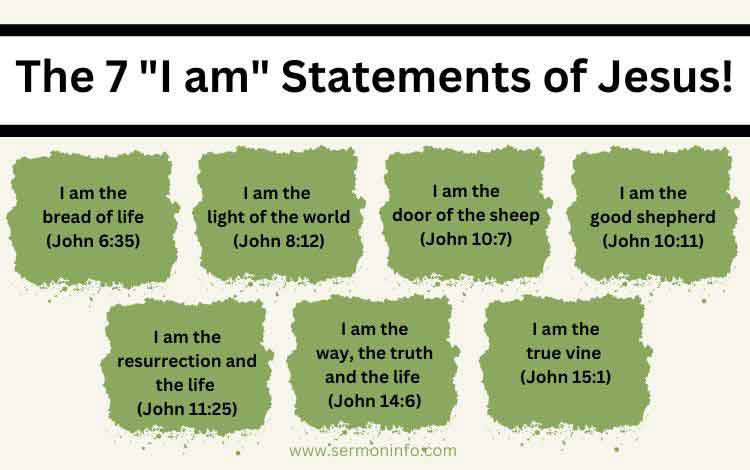From “Got Questions Ministries”
 Ben Hicks
Ben Hicks
Voices, Pentecost 11, Proper 13
This Sunday is about Communion and Jesus bringing bread from heaven

The Gathering of Manna, Bernardino Luini, c 1520
“One early, cloudy morning when I was forty-six, I walked into a church, ate a piece of bread, took a sip of wine. … This was my first communion. It changed everything.
“Eating Jesus, as I did that day to my great astonishment, led me against all my expectations to a faith I’d scorned and work I’d never imagined. The mysterious sacrament turned out to be not a symbolic wafer at all but actual food – indeed, the bread of life. In that shocking moment of communion, filled with a deep desire to reach for and become part of a body, I realized that what I’d been doing with my life all along was what I was meant to do: feed people.”
-Sara Miles, Take This Bread
The God of Surprises
“This, you see, is the sacraments. Communion and baptism are God’s external and objective words of love and forgiveness, given in a form which we can receive, for, as we said last week, the sacraments are God’s physical, visible words for God’s physical, visible people…
“But God, you see, our God rarely does what God is supposed to do. For our God is a God of surprises, of upheavals, of reversals. And so rather than do what God is supposed to do, God does the unexpected: instead of pronouncing judgment in the face of our sin and selfishness, God offers mercy; instead of justice, love; instead of condemnation, forgiveness; instead of coming in power, God came in weakness; and instead of giving us a miracle, God gives us God’s own self. For as Martin Luther would remind us, the whole of Jesus’ life, death, and resurrection are summed up both succinctly and eloquently in the two words we hear when coming to the Table: “for you.” This is Christ’s body, given for you. This is Christ’s blood, shed for you.”
– David Lose. President of Luther Seminary
“What is manna? Is it a Hebrew pun on mah hu, or as Everett Fox suggests, “Whaddayacallit”: What is this stuff? Is manna mountains of sweet insect excrement, as proposed by some scholars, or the stuff of legend, of a tale told over the generations about how, in some mysterious way, God gives us life? The New Testament’s version of this question is “Who is he?” – and Christians have told one another, over the generations, that in some mysterious way he is the life that God gives. Our manna is Christ.”
–Gail Ramshaw, Christian Century, July 28, 2009
At the table
“Blessed are you Lord, God of all creation. Through your goodness we have this bread to offer, which earth has given and human hands have made. It will become for us the bread of life.”
– from the Roman Eucharistic Liturgy
The “I am” Statements

Verse 35 this Sunday is the first of the many “I am” statements in the Gospel of John. Jesus uses the “I am” statements (bread of life, 6:35; light of the world, 8:12; door, 10:7; good shepherd, 10:11; resurrection and life, 11:25; way, truth and life, 14:6; true vine, 15:1) to reveal the dimensions of his relationship to humankind.
Finding Jesus in Relationships

From Catherine’s sermon Aug 5, 2012
“The crowd is looking for Jesus after having been fed last week in the feeding of the 5,000. This time they have trailed around the lake to the new location on the other side. The new location is going to provide a new context for the interpretation of the miracles from the previous text. The crowd is still struggling with what happened and Jesus is finding they didn’t get the point.
“Where do we find God? In wonders? In some mighty achievements of our own or of others? John reduces the options to one: we find God in relationship. That relationship is established when we believe that Jesus is the message and messenger from God.
“This relationship is the source of life, eternal life. Belief is involved, in as much as we need to believe that Jesus really does play that role. Faith is then acting on that belief in trust and becoming part of God’s life in the world.
On the Sacraments
“The way that I most connect to Jesus through my faith is sacrimentally – a piece of bread essentially transformed into the body, blood, soul, and divinity of Jesus Christ that is available for me. It is the opportunity for me to literally to have communion with God himself. And I don’t deserve it, but I get it anyway.” – Jonathan Roumie (“Jesus” in the Chosen taken from the show “Jonathan & Jesus”).
 "So the sacraments hold this unusual place in the Church, in that they are both central to our life of faith and yet also can be so very confusing. In an attempt to clarify the connect between the sacraments and our daily lives, I’ll start with a phrase from St. Augustine: “visible words.” I find this phrase attractive because it helps me appreciate Baptism and Communion as the visible, physical counterpoint to the preaching and teaching of the church. That is, the sacraments are the embodiment of the proclaimed and heard gospel in physical form, the gospel given shape in water, bread, and wine. They serve us, then, as physical reminders of what we have heard and believe simply because we are physical creatures and remembering and believing can be so hard. And so we have the gospel preached to us so that we may hear it, and we have the same gospel given to us so that we may taste and touch and feel it with our hands and mouths and bodies.
"So the sacraments hold this unusual place in the Church, in that they are both central to our life of faith and yet also can be so very confusing. In an attempt to clarify the connect between the sacraments and our daily lives, I’ll start with a phrase from St. Augustine: “visible words.” I find this phrase attractive because it helps me appreciate Baptism and Communion as the visible, physical counterpoint to the preaching and teaching of the church. That is, the sacraments are the embodiment of the proclaimed and heard gospel in physical form, the gospel given shape in water, bread, and wine. They serve us, then, as physical reminders of what we have heard and believe simply because we are physical creatures and remembering and believing can be so hard. And so we have the gospel preached to us so that we may hear it, and we have the same gospel given to us so that we may taste and touch and feel it with our hands and mouths and bodies.
Watch!
Sunday Links, July 28, 2024
Tenth Sunday After Pentecost July 28, 11am
Recent Articles, Tenth Sunday after Pentecost, July 28, 2024
 Tenth Sunday after Pentecost, July 28
Tenth Sunday after Pentecost, July 28
Lectionary, July 28, 11am service
Commentary
Visual lectionary from Vanderbilt
Celebrating 50 years of Women’s ordination
“The Chosen” portrays the Feeding of the 5,000
Voices – Feeding the 5,000
Feeding of the 5,000 and the Graham Cracker
Physics behind Feeding of the 5,000
Food Facts
Food – Handling Waste
Feeding School children – Virginia Sunbucks
Another Way to Feed the 5,000 – in a Chevy!
Another Feeding – Babette’s Feast
Daniel Bonnell’s painting of the Feeding of the 5,000
July – It’s Crepes Myrtle time!
Remembering St. James, July 25
Ministries
Special
Sunbucks program, Beginning July, 2024
School Dressing Days, July 26-27
Chancellor’s Village
Chancellor’s Village Photos and sermon, June 25
Sacred Ground
Sacred Ground, May, 2024
Season of Creation
St. Peter’s and the Earth
Team Up to clean up event, April 20
Episcopal Church Men
ECM Maintenance, May 11
Newsletters
June newsletter
Episcopal Church Women
ECW Chair change
Jamaica
Award winners in Jamaica
Breakfast program in Jamaica
Performance
Portland Guitar Duo at St. Peter’s, April 19, 2024
Village Harvest
Summer meals
Village Harvest, June 2024
Education
Creeds class notes 5 sessions- Conclusion
God’s Garden collection
School Dressing Days Coming in July – Fredericksburg

Benefits – Every child who attends Dressing Days will get a new outfit — shirt, pants, underwear and socks — as well as toiletries and personal hygiene items, a backpack with school supplies and their pick of “gently used” coats, hoodies and shoes
When – 9 a.m. to 3 p.m. on Friday and Saturday, July 26-27, at The Church of Jesus Christ of Latter–day Saints, 1710 Bragg Road in Fredericksburg.
Coverage – City of Fredericksburg and the counties of Caroline, King George, Spotsylvania, and Stafford.
ID required- On the day of event Adults must bring proof of residence such as a driver’s license or a letter from social services. Head Start students need proof of acceptance into the program.
Preregistation required by July 13. All families who plan to attend must pre-register by July 13. They can do so online at interfaithcommunitycouncil.org/home. In-person registration will be held from 10 a.m. to 1 p.m. on Saturday, July 13, at The Church of Jesus Christ of Latter–day Saints.
Signup! – 200 volunteers needed for setup and working the event
1. Setup July 25
2. Work the event – July 26-27
July, 1974-Celebrating 50 years of women’s ordination

The Philadelphia Eleven were the first eleven women to be ordained as priests in the Episcopal Church on July 29, 1974, two years before the General Convention affirmed and explicitly authorized the ordination of women to the priesthood. A film was produced about their ascension to the priesthood for the 50th anniversary in 2024.
The 1974 ordination was seen as an act of civil disobedience and was highly controversial at the time.

The 11 women ordained in Philadelphia were the Revs. Merrill Bittner, Alla Renée Bozarth, Alison Cheek, Emily Hewitt, Carter Heyward, Suzanne Hiatt, Marie Moorefield Fleischer, Jeanette Piccard, Betty Bone Schiess, Katrina Swanson, and Nancy Wittig. From the Philadelphia Inquirer “While all were previously deacons, the women came from all over the country and from many different backgrounds, ages, walks of life, and political worldviews.”
Links
1. The Philadelphia Eleven: Courage and Change . Three minute Trailer
2. Article from “Religion Unplugged”
3. Film conversation. Filmmaker Margo Guernsey, and the Rev. Nancy Wittig (one of the eleven women ordained in Philadelphia) and others for the first public conversation about the film.
4. Watch the film online
Jul 26, 12:00 PM EDT – Jul 30, 12:00 PM. $11
5. Timeline of women’s ordination
Several dioceses are promoting screenings of “The Philadelphia Eleven” documentary to coincide with the anniversary, and special worship services are planned.
In the Diocese of Pennsylvania, Philadelphia Episcopal Cathedral has committed to a yearlong celebration of women in the church, starting July 28 with its Holy Eucharist. Heyward, as one of the Philadelphia Eleven, will preach. A screening of the documentary will follow.
The 81st General Convention, at its meeting last month in Louisville, Kentucky, also passed several resolutions recognizing the Philadelphia Eleven and the 50th anniversary of their ordination. Resolution D055 invites commemorations over the next three years, marking an anniversary triennium.
